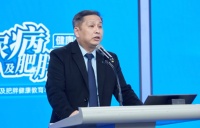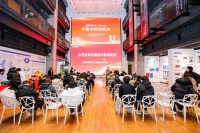运动可以促进新陈代谢、帮助骨骼发育、增加心肌力量、减少癌症发生, 同时可以锻炼人的意志、舒缓紧张的情绪和释放压力。本期《刊·见》栏目,为您介绍运动科学一区高品质期刊Qualitative Research in Sport, Exercise and Health ,同时我们精选了刊内高被引和2022高阅读量文章,供诸位阅读:
饱和还是不饱和?质疑数据饱和度作为主题分析和样本量基本原理的有用概念 自转式民族志:接受、改进、拒绝?评价性的自我反映 联合制作:指导体育、运动和健康科学联合制作研究的资源 超越生活技能:天才运动员、存在主义学习和(非)学习运动员的生活Qualitative Research in Sport, Exercise and Health 是第一本专门致力于在体育和运动心理学、体育社会学、体育教练以及体育和运动医学领域推进和讨论定性研究的国际期刊。该期刊为体育、运动和健康方面的研究人员提供一个交流平台,使研究人员、从业人员和学生能够接触到前沿的实证研究、学术对话以及定性方法和手段的最新发展。
Qualitative Research in Sport, Exercise and Health 对所有的定性方法开放,其目的是在内容上不拘一格。发表使用定性方法的原创性实证研究,以及定性综合集成和有关定性研究方法和方法论的综述。此外,该期刊已被SCIE, SSCI, Scopus, EBSCO, CABI, ProQuest等国际知名数据库收录。
展开剩余 93 %
访问期刊主页:http://985.so/mmjwm
影响因子:
根据JCR显示,Qualitative Research in Sport, Exercise and Health2021年影响因子为7.591
在酒店、休闲、体育与旅游领域排名14/58 在心理学:应用领域排名10/83CiteScore:
Qualitative Research in Sport, Exercise and Health 的
CiteScore(2021)为10.3 CiteScoreTracker(2022)为14.3根据Scopus显示,Qualitative Research in Sport, Exercise and Health 在
保健专业:物理治疗、运动治疗和康复领域排名5/218 社会科学:健康(社会科学)领域排名8/323 心理学:社会心理学领域排名8/296中科院分区:
Qualitative Research in Sport, Exercise and Health 在2022年12月中科院期刊分区表(升级版) 发布显示:
大类及分区:医学3区 小类及分区:运动科学3区;酒店、休闲、体育与旅游3区;心理学:应用3区编辑团队
Qualitative Research in Sport, Exercise and Health 的主编由Kerry R. McGannon(加拿大劳伦森大学)和Michael Atkinson(加拿大多伦多大学)共同担任。期刊顾问委员会成员由Brett Smith(英国杜伦大学)、Andrew Sparkes(英国利兹贝克特大学)、Vikki Krane(美国鲍林格林州立大学)共同组成。
作者分布
根据JCR显示,近三年在Qualitative Research in Sport, Exercise and Health 发文的国家中,发文活跃的国家有:
英国(90篇) 加拿大(61篇) 美国(30篇)近三年,在Qualitative Research in Sport, Exercise and Health发文的全球高校和科研机构中,发文活跃的机构有:
拉夫堡大学(14篇) 英属哥伦比亚大学(13篇) 多伦多大学(12篇)期刊近三年内高被引文章
所有的推荐文章,欢迎通过下方链接阅读全文,并下载
http://985.so/mmjwd
To saturate or not to saturate? Questioning data saturation as a useful concept for thematic analysis and sample-size rationales
饱和还是不饱和?质疑数据饱和度作为主题分析和样本量基本原理的有用概念
作者:Virginia Braun & Victoria Clarke
文章摘要:
The concept of data saturation, defined as ‘information redundancy’ or the point at which no new themes or codes ‘emerge’ from data, is widely referenced in thematic analysis (TA) research in sport and exercise, and beyond. Several researchers have sought to ‘operationalise’ data saturation and provide concrete guidance on how many interviews, or focus groups, are enough to achieve some degree of data saturation in TA research. Our disagreement with such attempts to ‘capture’ data saturation for TA led us to this commentary. Here, we contribute to critical discussions of the saturation concept in qualitative research by interrogating the assumptions around the practice and procedures of TA that inform these data saturation ‘experiments’, and the conceptualisation of saturation as information redundancy. We argue that although the concepts of data-, thematic- or code-saturation, and even meaning-saturation, are coherent with the neo-positivist, discovery-oriented, meaning excavation project of coding reliability types of TA, they are not consistent with the values and assumptions of reflexive TA. We encourage sport and exercise and other researchers using reflexive TA to dwell with uncertainty and recognise that meaning is generated through interpretation of, not excavated from, data, and therefore judgements about ‘how many’ data items, and when to stop data collection, are inescapably situated and subjective, and cannot be determined (wholly) in advance of analysis.
Autoethnography: accept, revise, reject? An evaluative self reflects
自传式民族志:接受、改进、拒绝?评价性的自我反映
作者:Andrew C. Sparkes
文章摘要:
In this article I offer some reflections of how my evaluative self goes about passing judgement on different kinds of autoethnography. I begin by making distinctions between the autobiographical and the autoethnographic before raising questions about whether or not self-reflexive accounts of the fieldwork process can claim the title of autoethnography. Following this, I consider the lists of criteria others have made available to my evaluative self for judging analytic, evocative and performance autoethnographies. Having acknowledged the dangers and possibilities of such lists attention then turns to how my evaluative self might go about judging a selection of autoethnographies published in Qualitative Research in Sport, Exercise and Health using multiple criteria from a variety of sources. Rather than being purely a cognitive, linear and rational act the process described is messy, tentative, contingent, and deeply embodied as my evaluative self feels its way towards making certain kinds of judgement calls over others.
刊内2022年高阅读量文章
下载下方文章,欢迎前往:http://985.so/mmjwd
Co-production: A resource to guide co-producing research in the sport, exercise, and health sciences
联合制作:指导体育、运动和健康科学联合制作资源的研究
作者:Brett Smith, Oli Williams, Lydia Bone & the Moving Social Work Co-production Collective
文章摘要:
There is growing interest in co-production in the sport, exercise, and health sciences. That includes from researchers in sport and exercise physiology, public health, sports medicine, sport sociology, sport and exercise psychology, sport management, physical education, sport coaching, leisure studies, geography, and occupational therapy. Despite the disciplinary spanning interest, academic resources in our field dedicated to the complex problem of comprehensively detailing the co-production of research and taking it forward are lacking. This paper is a modest attempt to do this. Rationales outlining the need for a resource are first presented. What is meant by co-production is then attended to. An original typology is developed to illuminate different ways co-production is defined and put to use. In the typology three differing types of co-production are described: Citizens’ Contributions to Public Services; Integrated Knowledge Translation; and Equitable and Experientially-informed Research. Why researchers co-produce research, along with various challenges involved with doing it, are then offered. It is suggested that generally university structures and academic norms tend not to facilitate co-production processes. Next, working principles to promote co-production as a means to advance a participatory turn in sport, exercise, and health research are introduced. We also highlight practical options for how to co-produce research and advance various criteria for judging the quality of it. Throughout it is highlighted why qualitative researchers are well prepared to do high quality co-produced research and should be considered important collaborators for researchers without qualitative expertise intending to co-produce research. The paper closes with future directions.
A typology of co-production
Beyond life-skills: talented athletes, existential learning and (Un)learning the life of an athlete
超越生活技能:天才运动员、存在主义学习和(非)学习运动员的生活
作者:Noora Ronkainen, Kenneth Aggerholm, Jacquelyn Allen-Collinson & Tatiana V. Ryba
文章摘要:
Following developments in educational discourse more broadly, learning discourses in youth sport have been shaped by outcome-based and instrumental goals of developing useful life-skills for ‘successful’ lives. There is, however, a need to expand such traditional understandings of sport-based youth development, which we undertook by exploring existential learning in sport through encountering discontinuity. We conducted in-depth qualitative research with 16 Finnish athletes (seven men/nine women, aged 19–20), five of whom had recently disengaged from the athlete development pathway. In the interviews, we used creative non-fiction vignettes to invite reflections on learning experiences in sport. Although participants reported having learnt many useful skills commonly associated with positive youth development discourses (e.g. goal setting, time-management), many also provided rich descriptions of other, important ‘life lessons’. These involved developing awareness of their bodily limitations, the nature of social relationships, and what it was like to live the life of an elite athlete. The findings revealed problematic features of (elite) sport cultures but also showed that encountering discontinuity could be beneficial as an important trigger for existential reflection, clarification of values, and a search for alternative ways of living.
审稿周期
从提交稿件到获取初审意见,平均需要18天
获取首个同行评审决定,平均需要71天
稿件一旦接受后,在线出版平均需要20天
——————————————————————————————————
作者可以选择开放获取模式在本刊发表文章。
以上内容可能更新,
请以期刊官网主页为准。
请前往期刊官网Qualitative Research in Sport, Exercise and Health
查看期刊最新数据和投稿详情!
为帮助更多科研人员选择更加合适的期刊,Taylor & Francis推出专栏——刊·见,该专栏致力于为读者和广大科研人员带来Taylor & Francis旗下期刊的详细解读,从期刊的基本情况、编委阵容、社会影响力到审稿速度、高被引文章等实用信息,专栏将为您带来最详细的介绍,让您更加全面地了解Taylor & Francis旗下优秀的国际期刊,帮助更多中国卓越的科研成果顺利在国际期刊上发表。





